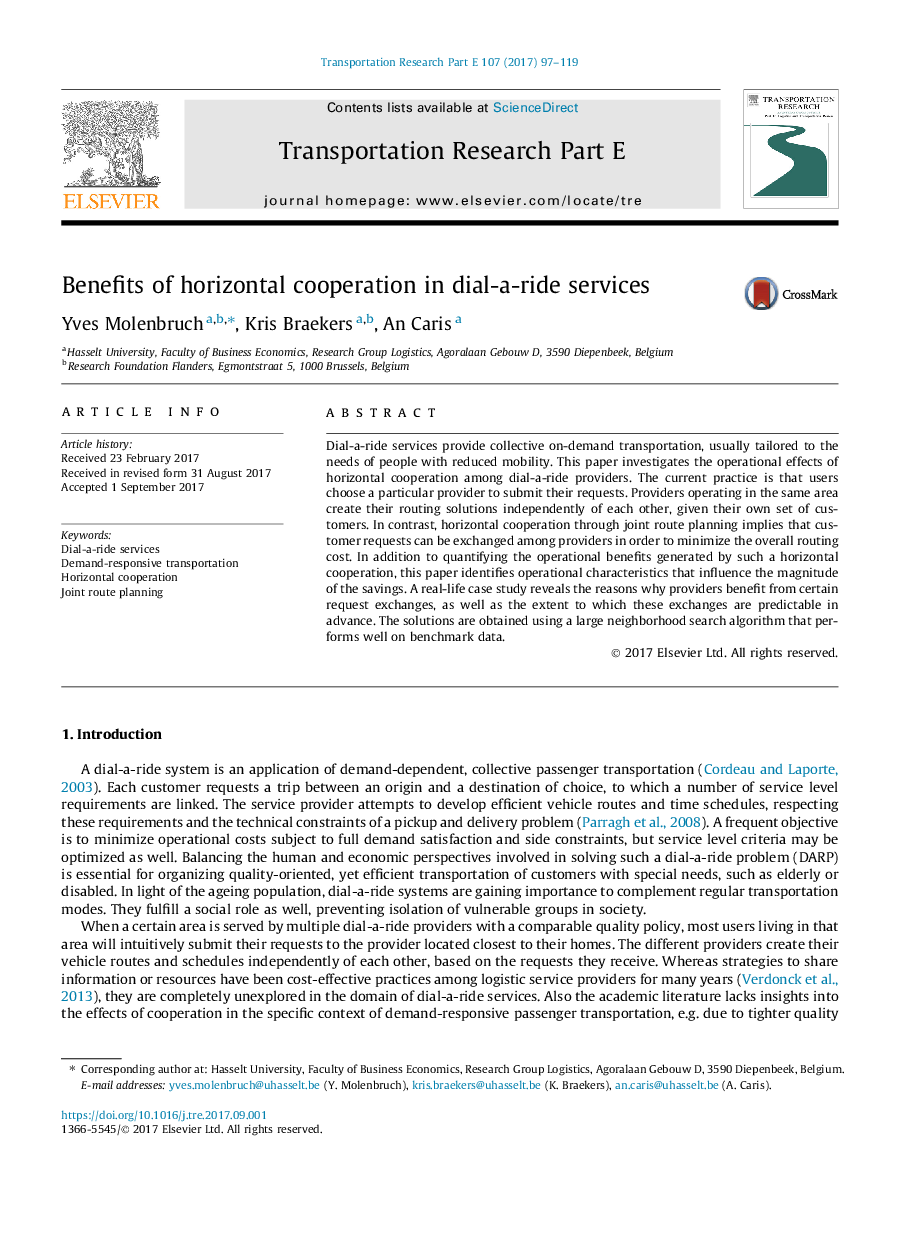| Article ID | Journal | Published Year | Pages | File Type |
|---|---|---|---|---|
| 5110420 | Transportation Research Part E: Logistics and Transportation Review | 2017 | 23 Pages |
Abstract
Dial-a-ride services provide collective on-demand transportation, usually tailored to the needs of people with reduced mobility. This paper investigates the operational effects of horizontal cooperation among dial-a-ride providers. The current practice is that users choose a particular provider to submit their requests. Providers operating in the same area create their routing solutions independently of each other, given their own set of customers. In contrast, horizontal cooperation through joint route planning implies that customer requests can be exchanged among providers in order to minimize the overall routing cost. In addition to quantifying the operational benefits generated by such a horizontal cooperation, this paper identifies operational characteristics that influence the magnitude of the savings. A real-life case study reveals the reasons why providers benefit from certain request exchanges, as well as the extent to which these exchanges are predictable in advance. The solutions are obtained using a large neighborhood search algorithm that performs well on benchmark data.
Keywords
Related Topics
Social Sciences and Humanities
Business, Management and Accounting
Business and International Management
Authors
Yves Molenbruch, Kris Braekers, An Caris,
